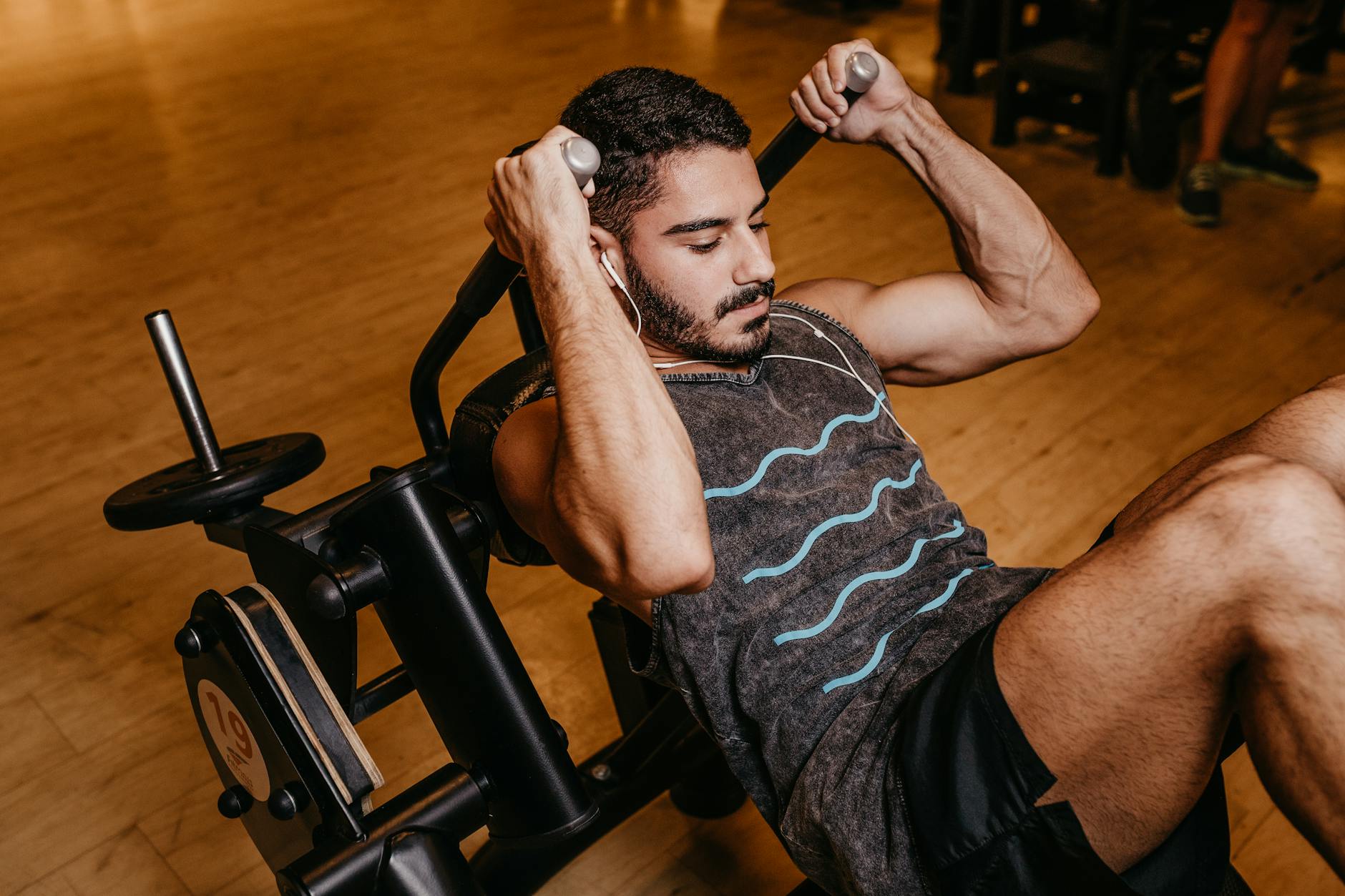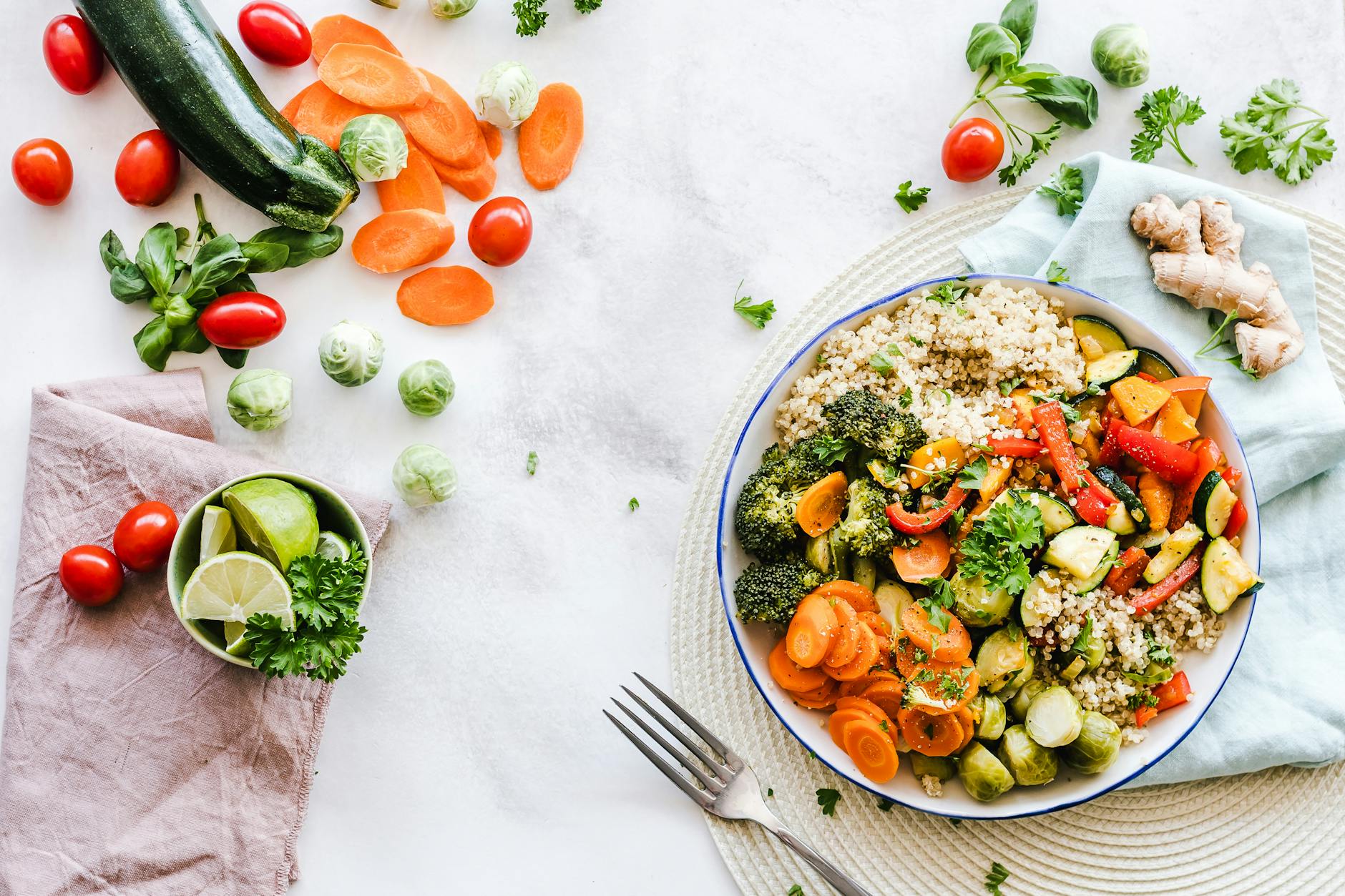Diet Plan To Build Muscle: What You Need To Fuel Up
You’re serious about building muscle, right? You’ve hit the gym, you’re lifting weights, you’re pushing yourself, but you’re still not seeing the results you want. Maybe you’re thinking, “Is my diet plan to build muscle holding me back?”
Let’s be real. Building muscle isn’t just about lifting heavy things. The food you eat plays a huge role. Imagine your body as a car. You can have the best engine in the world, but if you’re fueling it with bad gas, it’s not going to perform well. Same with your muscles. If you’re not giving them the right fuel, they won’t grow.
Key Takeaways
What is a Muscle-Building Diet Plan?
That brings us to the diet plan to build muscle, aka the “muscle-building diet”. It’s not about starving yourself or only eating protein bars. It’s about feeding your body the right nutrients to support muscle growth and repair. It’s about understanding what your body needs so it can become the lean, mean, muscle machine you want it to be.
The Key to Muscle Growth: Macronutrients
Now, we’re not talking about some fancy, complicated science stuff, we’re talking about the basics. The building blocks of your diet are called macronutrients. Think of them as the ingredients that make up your meals. There are three main macronutrients:
- Protein: This is the muscle-building superstar. Protein is what your body uses to repair and build new muscle tissue. It’s like the building blocks that your body needs to build muscle. If you don’t get enough protein, your muscles won’t have the materials they need to grow. Think whey protein for a quick boost after your workout.
- Carbohydrates: You need carbohydrates for energy. Think of them as the fuel for your workouts, especially grueling weight training sessions. They’re the gas that keeps your engine running so you can crush those reps and sets.
- Fats: You need healthy fats for hormone production, cell function, and to help your body absorb certain nutrients. Think of them as the lubrication for your body’s machinery. They keep things running smoothly.
Calorie Surplus: The Secret to Building Muscle
Your body needs more energy than you’re burning to build muscle. This is called a “calorie surplus”. Think of it like this: if you’re building a house, you need more materials than you already have. The same thing goes for your muscles. You need to provide your body with more calories than it burns to give it the energy it needs to grow.
Sample Meal Plan for Muscle Building: A Day in the Life
Let’s get practical. Here’s a sample diet plan to build muscle that will give you a sense of what to eat and when:
- Breakfast: Oatmeal with berries, nuts, and a scoop of protein powder for a good dose of protein and carbs to kickstart your day.
- Lunch: Chicken breast with brown rice and broccoli. This is a classic muscle-building meal that’s packed with protein and complex carbs for a sustained release of energy.
- Snack: A protein shake with banana. This is a quick and easy way to get a boost of protein and carbs after your workout to maximize your anabolic window.
- Dinner: Salmon with sweet potatoes and green beans. Salmon is a great source of lean protein and omega-3 fatty acids, while sweet potatoes provide healthy carbs and green beans give you your veggies.
This is just a basic example. It can be adjusted to fit your individual needs and preferences. You might want to eat more carbs if you’re training hard or more protein if you’re trying to bulk up.
Ready to Fuel Your Muscle Growth?
This is just the tip of the iceberg in terms of your diet plan to build muscle. You’ve got to understand your individual needs, adjust your daily intake, and track your progress to see what works best for you. Stay tuned for part 2, where we’ll dive deeper into the nitty-gritty details of a muscle-building diet to help you build the body you dream of!
Diet Plan To Build Muscle: Fuel Up With These Food Powerhouses
Building muscle is all about getting the right nutrients to fuel your body’s growth and recovery. A diet plan to build muscle is about more than just eating chicken and rice. It’s about strategically choosing the right foods to build a powerful physique.
The Muscle-Building Food Powerhouse: Essential Fuels
We’ve already covered the basics of macronutrients, but now let’s get into the specific foods that can help you build muscle. Think of them as the individual power sources that keep your engine running and your body growing.
Protein Powerhouses:
- Lean Meat: Chicken breast, turkey, lean beef, fish—these guys are packed with protein, which is what your body uses to repair and build new muscle tissue.
- Eggs: Eggs are an excellent source of complete protein, which means they contain all the essential amino acids your body needs to build muscle. Think of them as the building blocks that your body needs to grow bigger and stronger.
- Dairy: Milk, cheese, yogurt—these are good sources of protein, as well as calcium, which is important for bone health.
- Protein Powder: Protein powder is a convenient way to get a quick boost of protein after your workout. This is especially useful for those with busy schedules or people looking to increase their overall protein intake efficiently.
Complex Carbohydrate Champions:
- Sweet Potatoes: They’re filled with fiber, vitamins, and minerals, making them a great source of energy to fuel your workouts.
- Brown Rice: Brown rice is a whole grain that’s packed with fiber and essential nutrients, making it a good choice for providing sustained energy.
- Oats: Oats are a great source of fiber and complex carbohydrates that keep you feeling full and energized for hours. Think oatmeal for a hearty breakfast or steel-cut oats for a more filling option.
Healthy Fat Stars:
- Salmon: This fish is a great source of healthy fats, specifically omega-3 fatty acids, which are important for brain health and reducing inflammation.
- Avocado: Avocado is a good source of healthy fats, fiber, and vitamins, making it a great addition to smoothies, salads, or toast.
- Nuts and Seeds: Almonds, walnuts, chia seeds, and flaxseeds are packed with healthy fats, protein, and fiber, making them great snacks or additions to your meals.
How to Build Your Muscle-Building Meal Plan
Now that you know the key food players, let’s get practical:
- Focus on Whole Foods: Choose whole, unprocessed foods over processed, packaged foods.
- Plan Your Meals: Spend some time planning your meals ahead of time. This makes it easier to stick to your diet plan to build muscle.
- Meal Prep: Prepare your meals in advance. This saves you time and money in the long run. Think meal prepping containers and bulk buying for optimal efficiency.
- Track Your Progress: Monitor your progress and adjust your diet as needed. Your body will tell you what it needs.
Are Supplements Your Muscle-Building Secret Weapon?
Let’s be real—everyone wants to skip to the shortcuts. Supplements can be helpful, but they’re not a magic bullet for building muscle. They should be used as a supplement to a healthy diet and exercise routine, not as a replacement for them.
Popular Muscle-Building Supplements:
- Creatine: Creatine is a natural compound that your body produces. It helps your muscles produce energy. It can lead to increased strength and power.
- Whey Protein: We’ve already talked about this king of protein. It’s absorbed quickly, making it a good option after workouts.
- BCAAs: Branch-chain amino acids (BCAAs) are essential amino acids that help build and repair muscle tissue.
The Ultimate Muscle Building Blueprint: Diet + Exercise = Results
It’s all about the synergy. It’s about having a diet plan to build muscle that’s tailored to your needs and an exercise routine that’s pushing your limits.
- Weight Training: This is essential for building muscle. It puts stress on your muscles, causing them to adapt and grow bigger and stronger.
- Rest and Recovery: Give your body time to rest and recover between workouts. This is when your muscles repair and grow.
- Hydration: Drink plenty of water throughout the day. This is essential for muscle recovery and overall health.
This is all just a starting point. Your diet plan to build muscle should be tailored to your individual needs and goals. Talk to a fitness professional or registered dietitian to help you create a plan that’s right for you. Remember, you’re building muscle for the long haul, so consistency and dedication are key.
FAQs
What is a bodybuilding meal plan and how does it support muscle gain?
A bodybuilding meal plan is a structured diet designed to provide the right balance of macronutrients—proteins, carbohydrates, and fats—to promote muscle growth and improve overall performance in the gym. The plan typically emphasizes high protein intake to support muscle protein synthesis, along with adequate carbs to fuel workouts and healthy fats for overall health. Following a meal plan for muscle gain can be crucial for anyone serious about increasing muscle mass and strength.
How many calories should I consume to gain muscle?
Your calorie intake for muscle gain depends on your individual factors such as age, weight, height, and activity level. A general rule is to consume approximately 250-500 calories above your maintenance level, which is the amount needed to maintain your current weight. This surplus will help facilitate muscle growth. It’s also important to assess your progress regularly and adjust your caloric intake accordingly, ensuring you are gaining muscle mass rather than excess body fat.
What foods are essential for a bodybuilding meal plan?
Essential foods for a bodybuilding meal plan include high-quality protein sources such as chicken, turkey, fish, eggs, and dairy products. Incorporating whole foods like quinoa, brown rice, and sweet potatoes will provide necessary carbs for energy. Healthy fats from sources like avocados, nuts, and olive oil are also vital for hormonal balance and overall health. Including a variety of fruits and vegetables can help with micronutrient intake, which is crucial for muscle recovery and overall health.
How can I optimize my muscle growth through nutrition?
To optimize muscle growth, focus on a balanced intake of macronutrients. Aim for 1.2 to 2.2 grams of protein per kilogram of body weight daily. Incorporate a mix of carbs and fats to fuel workouts and recovery. Timing your nutrient intake around workouts—having protein shakes or protein powder within 30 minutes post-exercise—can help maximize muscle recovery and support muscle protein synthesis



